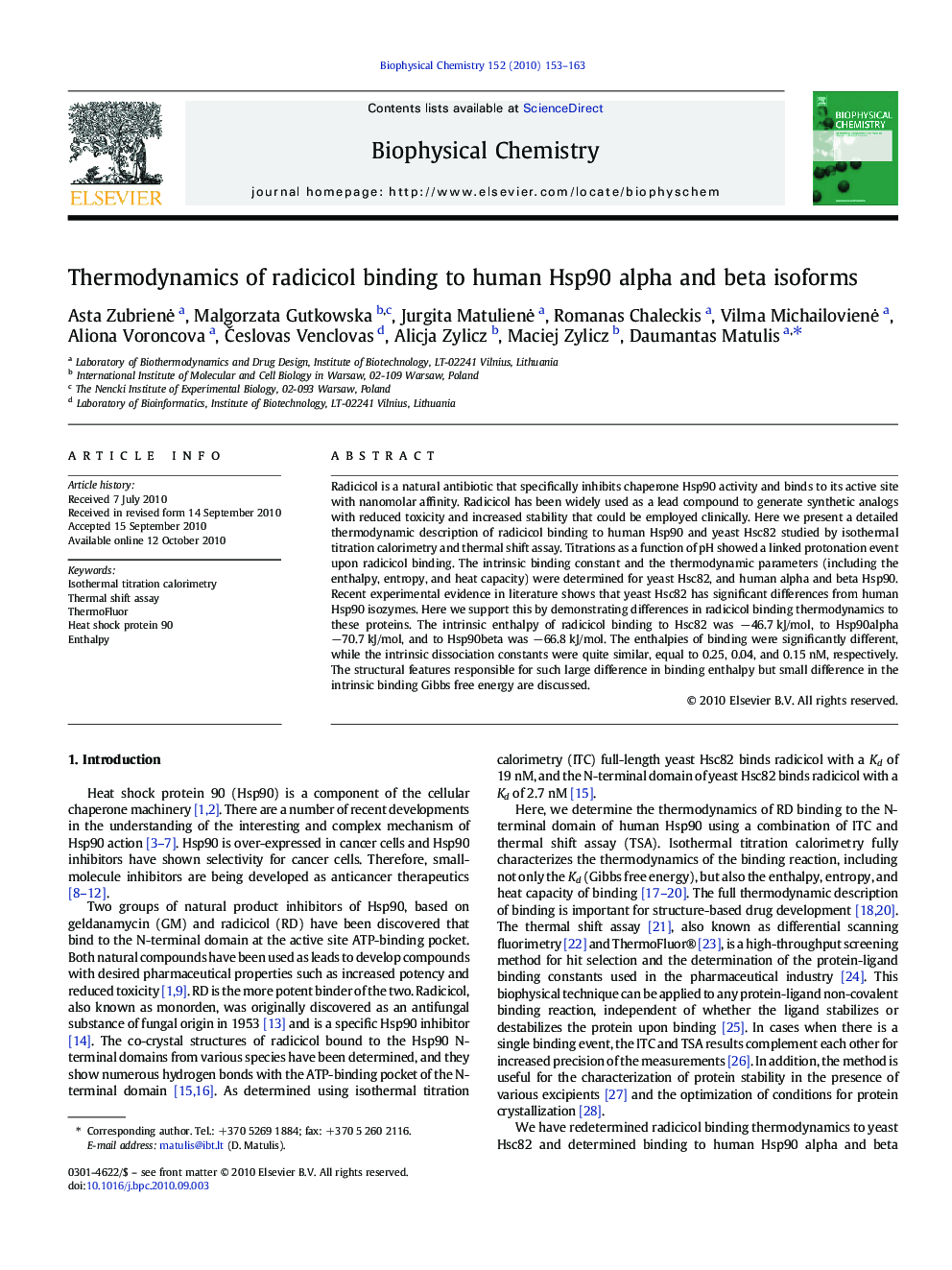| Article ID | Journal | Published Year | Pages | File Type |
|---|---|---|---|---|
| 5371486 | Biophysical Chemistry | 2010 | 11 Pages |
Radicicol is a natural antibiotic that specifically inhibits chaperone Hsp90 activity and binds to its active site with nanomolar affinity. Radicicol has been widely used as a lead compound to generate synthetic analogs with reduced toxicity and increased stability that could be employed clinically. Here we present a detailed thermodynamic description of radicicol binding to human Hsp90 and yeast Hsc82 studied by isothermal titration calorimetry and thermal shift assay. Titrations as a function of pH showed a linked protonation event upon radicicol binding. The intrinsic binding constant and the thermodynamic parameters (including the enthalpy, entropy, and heat capacity) were determined for yeast Hsc82, and human alpha and beta Hsp90. Recent experimental evidence in literature shows that yeast Hsc82 has significant differences from human Hsp90 isozymes. Here we support this by demonstrating differences in radicicol binding thermodynamics to these proteins. The intrinsic enthalpy of radicicol binding to Hsc82 was â46.7Â kJ/mol, to Hsp90alpha â70.7Â kJ/mol, and to Hsp90beta was â66.8Â kJ/mol. The enthalpies of binding were significantly different, while the intrinsic dissociation constants were quite similar, equal to 0.25, 0.04, and 0.15Â nM, respectively. The structural features responsible for such large difference in binding enthalpy but small difference in the intrinsic binding Gibbs free energy are discussed.
Graphical AbstractDownload full-size imageResearch Highlights⺠Radicicol binding to human Hsp90 and yeast Hsc82 is linked to a protonation event. ⺠Radicicol binds stronger to Hsp90alpha than to beta due to Ser52. ⺠The intrinsic enthalpy of radicicol binding to Hsc82 is less exothermic than human Hsp90.
